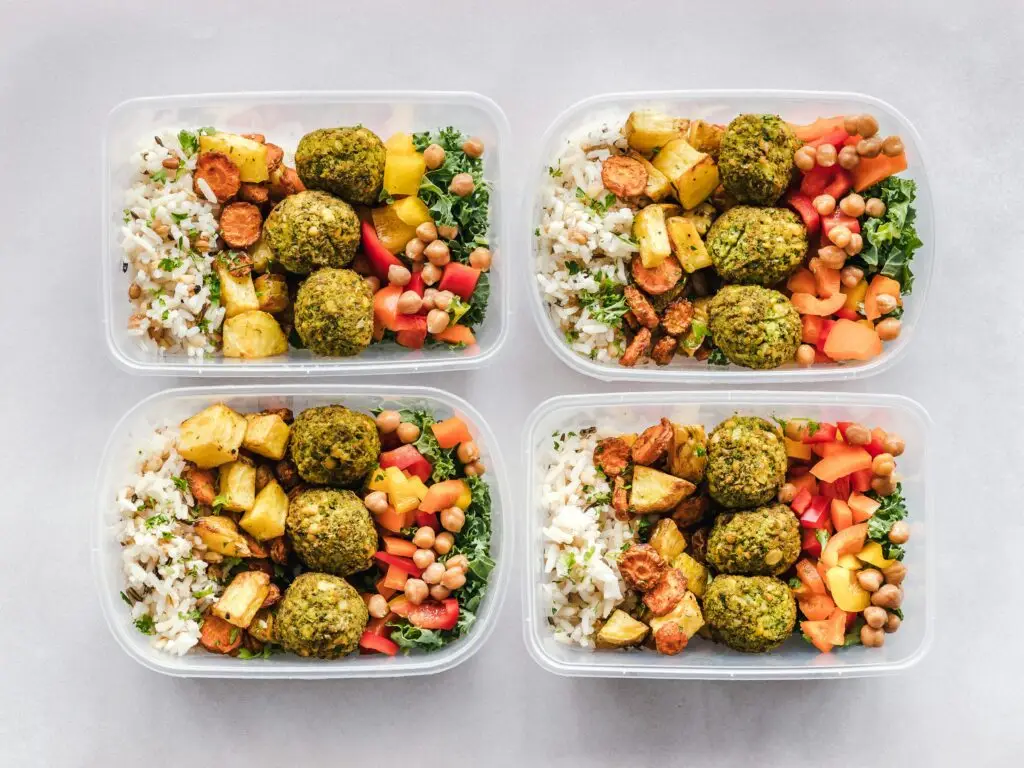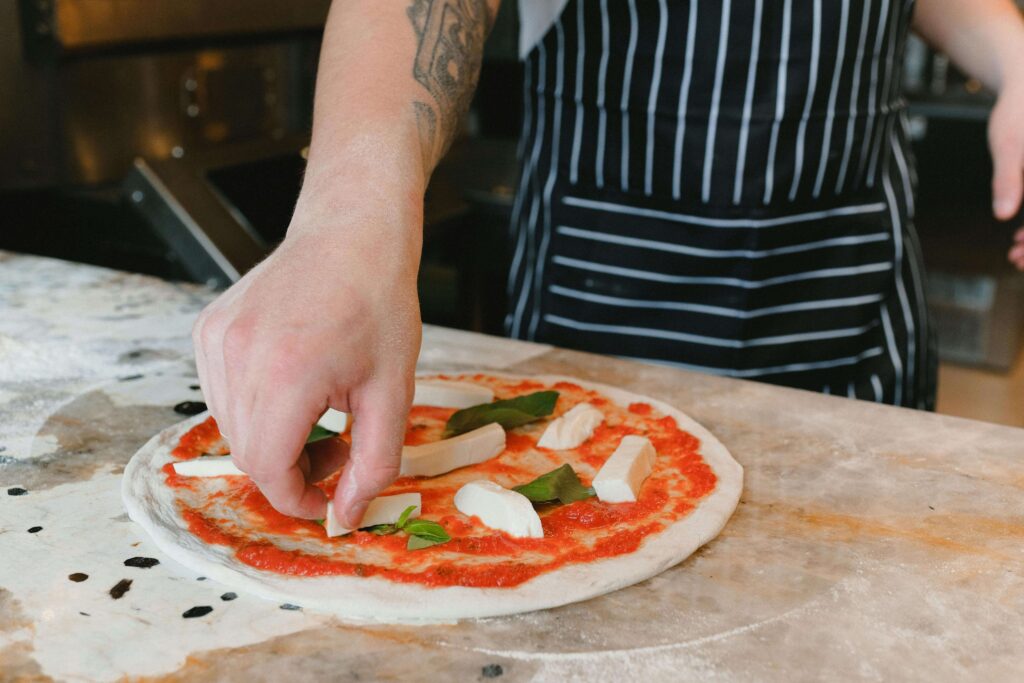The Ultimate Guide to Vegan Butter: Discover the Best Dairy-Free Alternatives
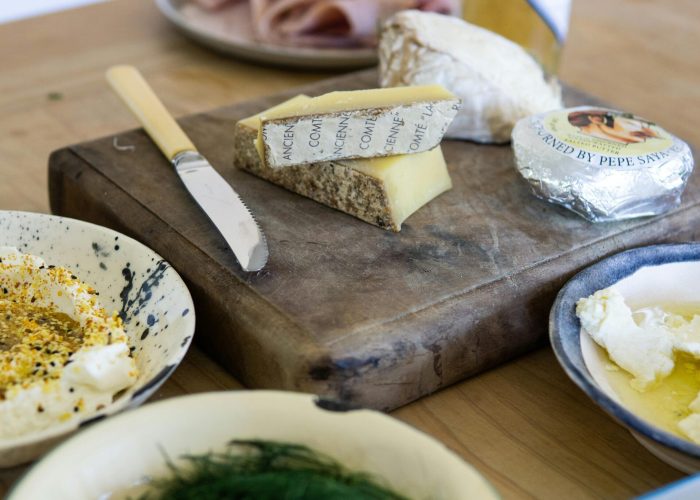
What is vegan butter?
Vegan butter, also known as plant-based butter or dairy-free butter, is a non-dairy alternative to traditional butter made from cow’s milk. It is a versatile ingredient that can be used in various cooking and baking applications, providing a rich, creamy texture and buttery flavor without the use of animal-derived products.
Vegan butter is typically made from a combination of plant-based oils, such as coconut, palm, or avocado oil, along with other ingredients like water, emulsifiers, and natural flavors. These ingredients are carefully blended to mimic the taste and texture of traditional butter, making it a suitable substitute for those following a vegan, lactose-intolerant, or dairy-free lifestyle.
The process of making vegan butter involves combining the oils and other ingredients, which are then whipped or churned to create a smooth, spreadable consistency. Some brands may also fortify their vegan butter with vitamins and minerals to provide additional nutritional benefits.
Common ingredients used in vegan butter
Vegan butter is made from a variety of plant-based ingredients, each contributing to its unique flavor and texture. Here are some of the most common ingredients found in vegan butter:
Plant-based oils:
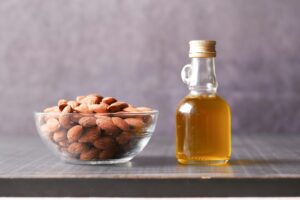
- Coconut oil
- Palm oil
- Avocado oil
- Olive oil
- Sunflower oil
- Soybean oil
Water
Emulsifiers (such as lecithin or mono- and diglycerides)
Natural flavors (like salt, vegan butter flavor, or plant-based milk)
Thickeners (such as vegetable gums or starches)
Preservatives (like tocopherols or ascorbic acid)
Colorants (like annatto or turmeric for a yellow hue)
The specific combination of ingredients may vary among different brands, but the goal is to create a product that closely resembles the taste, texture, and functionality of traditional butter.
Why choose vegan butter over traditional butter?
There are several reasons why individuals may choose to use vegan butter instead of traditional dairy-based butter:
Ethical considerations: Many people choose to follow a vegan lifestyle for ethical reasons, as it avoids the exploitation and harm of animals in the food production process.
Dietary restrictions: Vegan butter is a suitable alternative for those with lactose intolerance, dairy allergies, or other dietary restrictions that prevent them from consuming dairy products.
Environmental impact: The production of plant-based foods generally has a lower environmental footprint compared to animal-based products, making vegan butter a more sustainable choice.
Health benefits: Some plant-based butters may offer potential health advantages over traditional butter, such as being lower in saturated fat and cholesterol, and higher in beneficial plant compounds like antioxidants.
Versatility: Vegan butter can be used in a wide range of cooking and baking applications, making it a versatile ingredient for both savory and sweet recipes.
The health benefits of vegan butter
While the nutritional profile of vegan butter may vary depending on the specific brand and ingredients used, it generally offers several potential health benefits compared to traditional butter:
Lower in saturated fat: Many vegan butters are made from plant-based oils that are lower in saturated fat, which can help reduce the risk of heart disease and other chronic conditions when consumed in moderation.
Cholesterol-free: Since vegan butter is derived from plant sources, it is naturally free of cholesterol, making it a healthier option for those watching their cholesterol intake.
Potential source of beneficial plant compounds: Depending on the ingredients used, some vegan butters may contain beneficial plant compounds like antioxidants, which can help protect against oxidative stress and inflammation.
Lactose-free: Vegan butter is a suitable alternative for individuals with lactose intolerance or dairy allergies, as it does not contain any dairy-derived ingredients.
Suitable for special diets: Vegan butter can be easily incorporated into various dietary patterns, such as vegan, plant-based, or dairy-free diets, making it a versatile ingredient for those with specific dietary requirements.
It’s important to note that while vegan butter may offer potential health benefits, it should still be consumed in moderation as part of a balanced diet, as it can be high in calories and potentially contain unhealthy additives or preservatives, depending on the brand and ingredients used.
How to use vegan butter in cooking and baking
Vegan butter can be used in a wide range of cooking and baking applications, just like traditional butter. Here are some common ways to incorporate vegan butter into your recipes:
Baking: Vegan butter is an excellent substitute for traditional butter in baked goods like cookies, cakes, muffins, and pastries. It can be used for creaming, mixing into batters, and creating flaky pie crusts or tender biscuits.
Sautéing and frying: Use vegan butter for sautéing vegetables, frying eggs or pancakes, or creating a flavorful base for sauces and gravies.
Spreading and topping: Spread vegan butter on toast, biscuits, or warm bread for a rich, buttery flavor. It can also be used as a topping for popcorn, baked potatoes, or steamed vegetables.
Roasting and grilling: Brush vegan butter over meats, fish, or vegetables before roasting or grilling to add flavor and prevent drying out.
Sauces and dressings: Incorporate vegan butter into sauces, dressings, or marinades for added richness and creaminess.
Baking substitutions: In most recipes, you can substitute vegan butter for traditional butter in a 1:1 ratio. However, it’s always a good idea to check the specific instructions on the vegan butter package or recipe for any recommended adjustments.
When using vegan butter in baking, it’s essential to follow the recipe instructions carefully, as the water content and melting point of vegan butter may differ from traditional butter, potentially affecting the texture and outcome of your baked goods.
Top dairy-free alternatives for vegan butter
While vegan butter is a popular choice for those following a dairy-free or plant-based diet, there are several other dairy-free alternatives that can be used in cooking and baking:
Coconut oil: Coconut oil is a versatile and flavorful option that can be used for baking, sautéing, and roasting. It has a high smoke point and a rich, tropical flavor.
Olive oil: Extra virgin olive oil is a heart-healthy option that can be used for sautéing, roasting, and in dressings or marinades. It has a distinct flavor that works well in savory dishes.
Avocado oil: With a mild flavor and high smoke point, avocado oil is an excellent choice for baking, frying, and roasting. It’s also rich in healthy monounsaturated fats.
Nut butters: Nut butters like almond, peanut, or cashew butter can be used as a dairy-free alternative in baking, adding richness and moisture to recipes.
Applesauce or mashed bananas: These fruit-based alternatives can be used as a substitute for butter in baked goods, providing moisture and natural sweetness.
Vegetable shortening or vegan margarine: While not the healthiest options, these can be used as direct substitutes for butter in baking when a specific texture or consistency is desired.
Dairy-free milk and oil combination: For a simple butter substitute, you can mix dairy-free milk (like almond, soy, or oat milk) with a neutral-flavored oil (like canola or vegetable oil) in a 3:1 ratio.
When substituting other ingredients for vegan butter, it’s important to consider the flavor profile, texture, and intended use in your recipe, as each alternative may have a slightly different effect on the final product.
Homemade vegan butter recipes
While there are many excellent store-bought vegan butter options available, some people prefer to make their own homemade versions. Here are a few simple and delicious homemade vegan butter recipes to try:
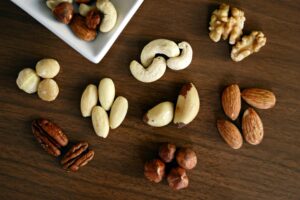
Cashew Vegan Butter
Ingredients:
- 1 cup raw cashews, soaked in water for 4-6 hours and drained
- 1/2 cup water
- 1/2 teaspoon salt
- 1/4 teaspoon lactic acid powder (optional, for a tangier flavor)
Instructions:
- Blend the soaked cashews, water, salt, and lactic acid powder (if using) in a high-speed blender until smooth and creamy.
- Transfer the mixture to a saucepan and cook over medium heat, stirring constantly, until thickened to a spreadable consistency, about 5-7 minutes.
- Pour the vegan butter into a container and refrigerate until firm, at least 2 hours.
- Use as you would regular butter in cooking and baking.
Coconut Vegan Butter
Ingredients:
- 1 cup coconut oil, softened but not melted
- 1/2 cup coconut milk
- 1/2 teaspoon salt
- 1 teaspoon lemon juice or apple cider vinegar
Instructions:
- In a large bowl, whip the softened coconut oil with a hand mixer or stand mixer until light and fluffy.
- Slowly add the coconut milk, salt, and lemon juice or vinegar, and continue to whip until well combined and smooth.
- Transfer the vegan butter to a container and refrigerate until firm, at least 2 hours.
- Use in cooking and baking as you would regular butter.
Almond Vegan Butter
Ingredients:
- 1 cup raw almonds, soaked in water for 8-12 hours and drained
- 1/2 cup water
- 1/4 cup coconut oil, melted
- 1/2 teaspoon salt
- 1 teaspoon apple cider vinegar or lemon juice
Instructions:
- In a high-speed blender, blend the soaked almonds, water, melted coconut oil, salt, and apple cider vinegar or lemon juice until smooth and creamy.
- Transfer the mixture to a saucepan and cook over medium heat, stirring constantly, until thickened to a spreadable consistency, about 5-7 minutes.
- Pour the vegan butter into a container and refrigerate until firm, at least 2 hours.
- Use as a substitute for regular butter in cooking and baking.
These homemade vegan butter recipes are not only delicious but also allow you to control the ingredients and avoid any unwanted additives or preservatives. Experiment with different nut or seed varieties, spices, and flavorings to create your own unique vegan butter blends.
Store-bought vegan butter brands to try
If you prefer the convenience of store-bought vegan butter, there are many excellent options available on the market. Here are some popular and widely available vegan butter brands to consider:
Earth Balance: One of the most well-known and widely available vegan butter brands, Earth Balance offers a variety of products, including buttery spreads, baking sticks, and whipped varieties.
Miyoko’s Creamery: This artisanal brand offers a range of vegan butter products made from organic coconut oil, cashews, and other plant-based ingredients, with a rich and creamy texture.
Melt Organic: Melt Organic’s vegan butter is made from a blend of coconut oil, palm fruit oil, and other plant-based ingredients, providing a buttery flavor and spreadable texture.
Nutiva Buttery Coconut Oil: While not technically a vegan butter, Nutiva’s Buttery Coconut Oil is a versatile and flavorful alternative made from coconut oil and natural flavors.
Forager Project: This brand offers a range of plant-based products, including a vegan butter made from cashews, coconut oil, and other natural ingredients.
Wayfare Foods: Wayfare Foods’ vegan butter is made from a blend of plant-based oils and is designed to mimic the taste and performance of traditional butter in cooking and baking.
Milkadamia: This brand offers a vegan butter alternative made from macadamia nuts, coconut oil, and other plant-based ingredients, providing a rich and creamy texture.
When selecting a store-bought vegan butter, be sure to read the ingredient labels carefully and choose products that align with your dietary preferences and needs. Some brands may contain additional ingredients like palm oil or preservatives, which may be a concern for some individuals.
Vegan butter substitutes in recipes
While vegan butter is a versatile and convenient ingredient, there may be times when you need to substitute it in a recipe due to dietary restrictions, allergies, or personal preferences. Here are some common vegan butter substitutes that can be used in cooking and baking:
Coconut oil: Coconut oil is a popular vegan butter substitute, especially in baking. It can be used in a 1:1 ratio for vegan butter and provides a rich, tropical flavor. However, it may not work as well in recipes that require a buttery flavor.
Applesauce or mashed bananas: These fruit-based substitutes can be used in baked goods to replace vegan butter, providing moisture and natural sweetness. Use about 1/2 cup of applesauce or mashed bananas for every 1/2 cup of vegan butter called for in the recipe.
Nut butters: Smooth nut butters like almond, peanut, or cashew butter can be used as a substitute for vegan butter in baking. They add richness, moisture, and a nutty flavor. Use about 3/4 cup of nut butter for every 1 cup of vegan butter in the recipe.
Avocado or mashed avocado: Avocado is a creamy and nutrient-dense substitute for vegan butter, particularly in savory dishes like sauces, dressings, or spreads. Use an equal amount of mashed avocado to replace vegan butter.
Olive oil or vegetable oil: For recipes that require melted vegan butter, you can substitute with an equal amount of olive oil or a neutral-flavored vegetable oil like canola or grapeseed oil.
Dairy-free milk and oil combination: Mix dairy-free milk (like almond, soy, or oat milk) with a neutral-flavored oil (like canola or vegetable oil) in a 3:1 ratio to create a simple vegan butter substitute.
Vegan margarine or shortening: While not the healthiest options, vegan margarine or vegetable shortening can be used as a direct substitute for vegan butter in baking when a specific texture or consistency is desired.
When substituting vegan butter in recipes, it’s important to consider the flavor profile, texture, and intended use of the dish. Some substitutes may work better in certain applications than others, and you may need to adjust the amounts or make other modifications to achieve the desired results.
Conclusion
Vegan butter has become a staple ingredient in many plant-based kitchens, offering a delicious and versatile alternative to traditional dairy-based butter. With its rich, creamy texture and buttery flavor, vegan butter can be used in a wide range of cooking and baking applications, from savory dishes to sweet treats.
Whether you choose to make your own homemade vegan butter or opt for a store-bought brand, there are countless options available to suit your dietary needs and preferences. Additionally, if you need to substitute vegan butter in a recipe, there are various plant-based alternatives that can be used, each with its own unique flavor and texture profile.
Incorporating vegan butter into your cooking and baking can not only satisfy your cravings for buttery goodness but also align with your ethical, dietary, or environmental values. So why not embrace the world of vegan butter and explore the endless possibilities it offers in your plant-based culinary adventures?
If you’re ready to embrace the world of vegan butter and explore the best dairy-free alternatives, be sure to check out our curated selection of high-quality vegan butter products. Visit our online store today and elevate your plant-based cooking and baking with the rich, creamy goodness of vegan butter. Don’t miss out on the delicious and ethical choice – shop now and bring the ultimate buttery experience to your kitchen!

